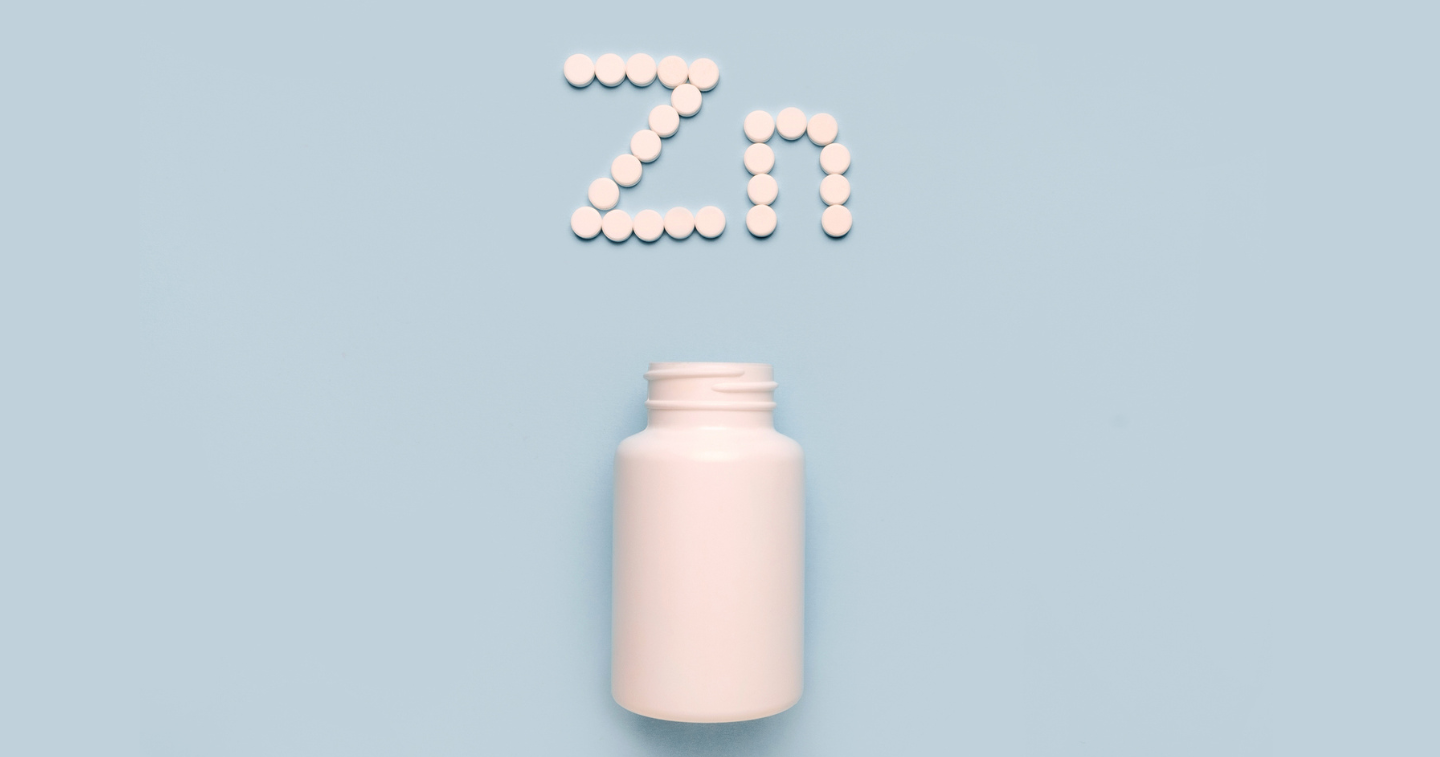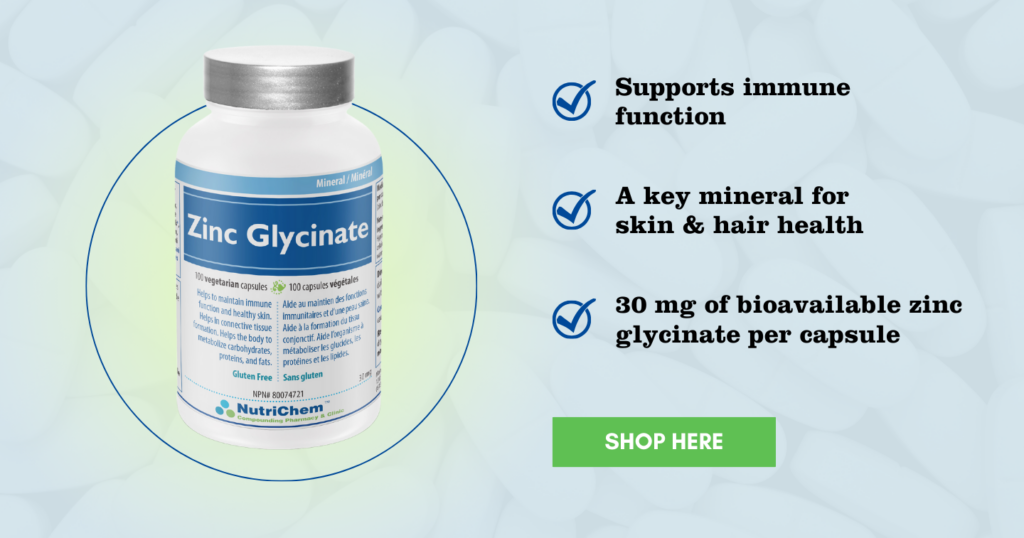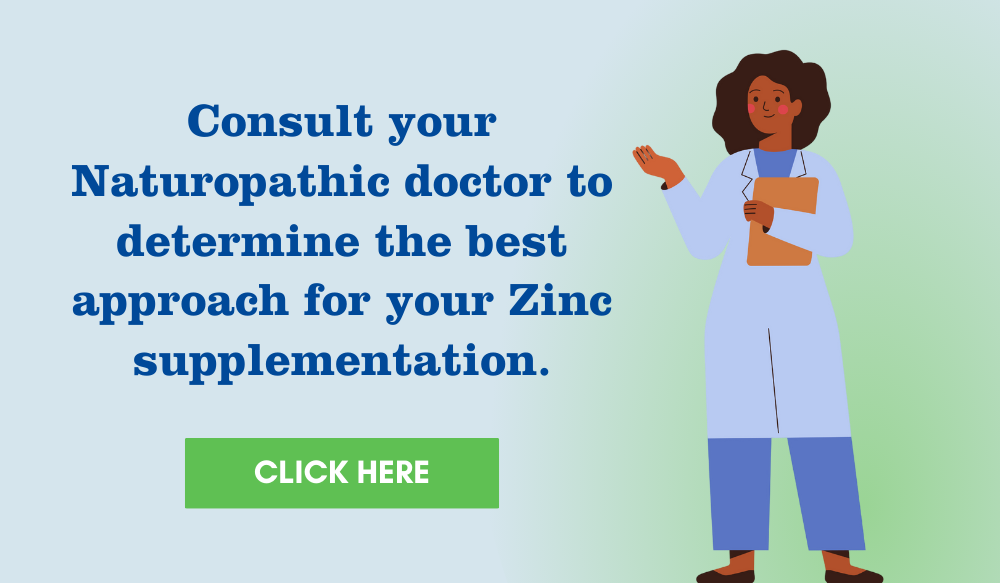Here are a few lesser-known roles that Zinc plays:
1- Low Zinc Levels are Associated with Hypothyroidism…
Alongside other trace minerals such as iodine, selenium, iron, and magnesium, zinc plays a crucial role in thyroid function. Correcting a zinc deficiency through supplementation can improve T3 and T4 thyroid hormone levels, and reduce serum TSH in cases of hypothyroidism.
2- Zinc Supports Male Fertility
Zinc significantly influences male reproductive health and supports sperm health. Studies indicate that higher zinc levels are associated with improved fertility in men. In animal models, zinc supplementation led to increased sperm motility, sperm count, and testosterone levels.
3- Zinc Plays a Significant Role in Immune Function
Zinc supplementation can reduce the duration of colds by approximately 33%, especially if initiated within 24 hours of symptom onset. It helps maintain physical barriers and mucous membranes in the nasal passageway, enhancing natural immune function. A 2022 Meta-analysis also revealed that zinc supplementation was linked to a lower mortality rate in COVID-19 patients. Populations such as the elderly or children may benefit from zinc supplementation for immune support.
4- Zinc is Essential for Skin & Hair Health
Zinc supplementation correlates positively with various skin conditions, including acne, eczema, psoriasis, seborrheic dermatitis, rosacea, hidradenitis suppurativa, viral warts, and ulcer/wound healing. With its high concentration in skin tissue and ability to preserve tissue barriers, zinc is a powerhouse for skin conditions. Zinc protein transporters regulate the formation and health of hair follicles, making zinc vital for overall hair health.
NutriChem’s Zinc supplement contains the well-absorbed zinc-glycinate form, ensuring minimal side effects. Each daily dose contains 30 mg of zinc glycinate and is free from fillers or additives.
Too Much of a Good Thing?
Like any supplementation, understanding potential side effects and interactions is crucial. Fortunately, zinc supplementation is relatively safe, with the most common side effect being nausea, which can often be mitigated by taking zinc with a substantial meal rather than on an empty stomach.
But Wait, What About Copper?
Zinc and Copper compete for the same receptors in the body, leading some supplements to combine zinc with copper. This is primarily necessary with long-term supplementation involving very high doses of zinc (over 50-100 mg).
References
- Plum, L. M., Rink, L., & Haase, H. (2010). The essential toxin: impact of zinc on human health. International Journal of Environmental Research and Public Health, 7(4), 1342-1365.
- Rondanelli, M., Miccono, A., Lamburghini, S., Avanzato, I., Riva, A., Allegrini, P., … & Perna, S. (2018). Self-care for common colds: the pivotal role of vitamin D, vitamin C, zinc, and echinacea in three main immune interactive clusters (physical barriers, innate and adaptive immunity) involved during an episode of common colds—practical advice on dosages and on the time to take these nutrients/botanicals in order to prevent or treat common colds. Evidence-Based Complementary and Alternative Medicine, 2018.
- Tabatabaeizadeh, S. A. (2022). Zinc supplementation and COVID-19 mortality: a meta-analysis. European Journal of Medical Research, 27(1), 1-6.
- Zou, P., Du, Y., Yang, C., & Cao, Y. (2023). Trace element zinc and skin disorders. Frontiers in Medicine, 9, 1093868.
- Zhou, Q., Xue, S., Zhang, L., & Chen, G. (2022). Trace elements and the thyroid. Frontiers in Endocrinology, 13, 904889.





